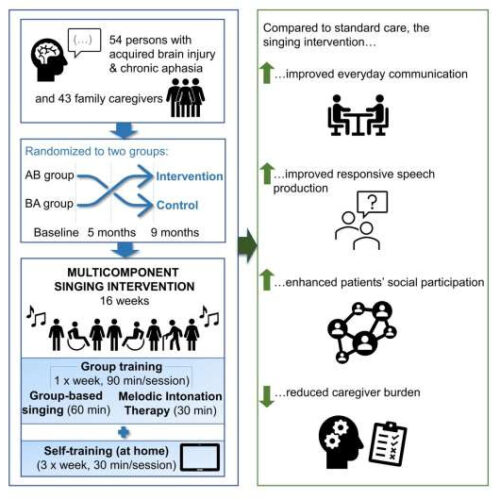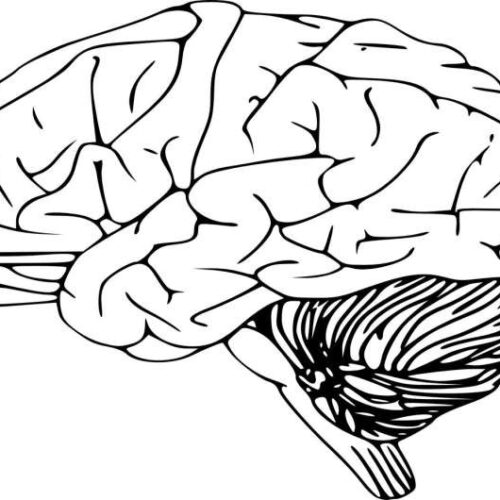by University of Helsinki Graphical abstract. Credit: Brain Communications (2022). DOI: 10.1093/braincomms/fcac337 Approximately 40% of stroke survivors experience aphasia, a difficulty with comprehending or producing spoken or written language caused by a cerebrovascular accident. In half of these cases the language impairment still persists one year post-stroke. Aphasia has wide-ranging effects on the ability to function and...
Tag: <span>singing</span>
Post
Neuroscientists identify population of neurons in the brain that respond to singing but not other types of music
by Sarah McDonnell, Massachusetts Institute of Technology Credit: Pixabay/CC0 Public Domain For the first time, MIT neuroscientists have identified a population of neurons in the human brain that lights up when we hear singing, but not other types of music. These neurons, found in the auditory cortex, appear to respond to the specific combination of...
Post
Unraveling the connections between singing and Parkinson’s disease
In a small lab decorated with a poster of colorful MRI brain scans, Elizabeth Stegemoller hits a stopwatch to record how long a participant in her study can sustain the vowel sound “ah” before taking a breath. They run through this a few times before Stegemoller moves on to measure the participant’s range of pitch...


